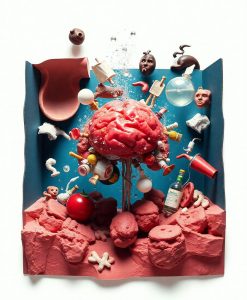Imagine waking up one morning feeling a little off—your face feels uneven when you smile, or your arm feels heavy and unresponsive when you try to lift it. Maybe your speech is slurred, or your vision suddenly blurs. These subtle sensations might seem minor at first, but they could be the body’s way of telling you something serious is about to happen. Recognizing these early, often overlooked, warning signs of stroke can make all the difference in preventing a life-altering event.
Stroke is often portrayed as an abrupt, devastating event—something that hits without warning. But in reality, many people experience the precursor signals long before a full-blown stroke occurs. These early indicators can be fleeting or mild, slipping past unnoticed or dismissed as temporary lapses. Yet, paying close attention to these sensations, especially if they happen repeatedly or intensify over time, can empower you to seek help early, potentially saving your life or preventing long-term disability.
How to Recognize Early Symptoms of Stroke and Act Quickly
One of the most important aspects of stroke awareness is understanding the common early symptoms. These include sudden weakness or numbness in the face, arm, or leg—especially if it’s one-sided. You might notice your face drooping or your arm feeling heavy and unresponsive. Speech might become slurred or strange, and your vision could suddenly become blurry or double. Often, these signs are fleeting, lasting only a few moments, but that doesn’t mean they should be ignored.
In addition, some individuals report feelings of dizziness, confusion, or difficulty understanding speech days or hours before a major event. These subtle sensations can be mistaken for fatigue or stress, but recognizing them as potential warning signs of an impending stroke is crucial. If you or someone you know experiences these symptoms, even temporarily, it’s vital to seek emergency medical attention immediately. The phrase “time is brain” underscores how rapid response can significantly improve outcomes.
Living with awareness of these early stroke symptoms can make a profound difference. It’s not just about reacting to a sudden event but understanding that your body might be giving you signals long before it escalates. Regular health check-ups, managing blood pressure, controlling diabetes, and avoiding smoking are all vital steps in lowering your stroke risk, but vigilance for early symptoms is equally important.
Taking Control Through Knowledge and Preparedness

Knowing what to look for transforms you from a passive observer into an active participant in your health. Imagine noticing a slight weakness in your arm one morning, or feeling a temporary speech difficulty, and choosing to get checked out immediately. This proactive approach can be life-changing. It’s about listening deeply to your body’s signals and trusting your instincts.
Remember, stroke can affect anyone—regardless of age or health status. While risk factors like high blood pressure, heart disease, and lifestyle choices play significant roles, awareness of early warning signs remains a cornerstone of prevention. Educating yourself and your loved ones about the signs of stroke creates a safety net that can catch warning signs before they turn deadly.
In a world where health information is abundant, the simplest knowledge can save lives. Recognizing early symptoms, acting fast, and seeking urgent care are your best tools against the devastating effects of stroke. Empower yourself with awareness—because understanding the body’s signals might just be the key to preserving your future.
Learn More: Dr. Crandall: What You Should Know About Stroke
Abstract: Pope Francis died, at age 88, after suffering a stroke last Monday, April 21. The Pope had the stroke in the early morning hours, which led to a coma and later, heart failure, according to the Vatican. According to the American Stroke Association, in the United States, every…
Link: Read Full Article (External Site)


